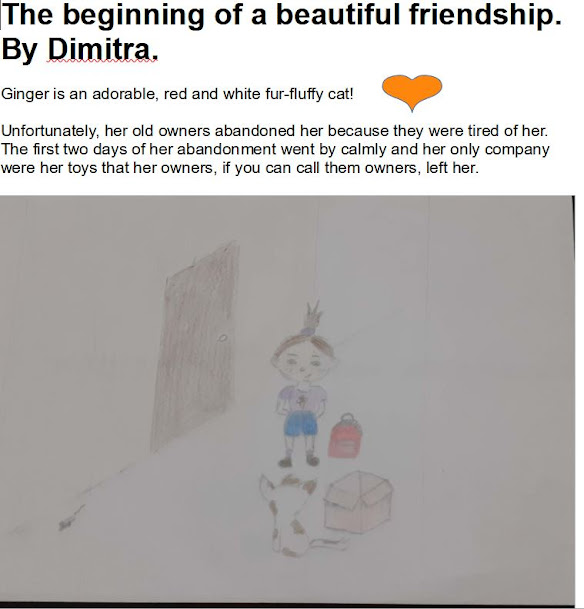Ανακοινώνεται ότι από την Δευτέρα 21 Μαρτίου 2016 μέχρι και την Παρασκευή 1 Απριλίου 2016 θα υποβάλλονται αιτήσεις συμμετοχής στις εξετάσεις του Κρατικού Πιστοποιητικού Γλωσσομάθειας εξεταστικής περιόδου Ιουνίου 2016.
Οι εξετάσεις θα διεξαχθούν το Σάββατο 11 και την Κυριακή 12 Ιουνίου 2016 για τα επίπεδα:
α) Επίπεδο Α (Α1 «στοιχειώδης γνώση» και Α2 «βασική γνώση») σε ενιαία διαβαθμισμένη δοκιμασία (test), στις γλώσσες Αγγλική, Γαλλική, Γερμανική Ιταλική και Ισπανική.
β) Επίπεδο Β (Β1 «μέτρια γνώση», Β2 «καλή γνώση») σε ενιαία διαβαθμισμένη δοκιμασία (test)στις γλώσσες Αγγλική, Γαλλική, Γερμανική, Ιταλική και Ισπανική.
γ) Επίπεδο Γ (Γ1 «πολύ καλή γνώση», Γ2 «άριστη γνώση») σε ενιαία διαβαθμισμένη δοκιμασία (test)στις γλώσσες Αγγλική, Γαλλική, Γερμανική, Ιταλική και Ισπανική.
Όσοι επιθυμούν να λάβουν μέρος στις εξετάσεις, υποβάλλουν τα παρακάτω δικαιολογητικά στις κατά τόπους Διευθύνσεις Δευτεροβάθμιας Εκπαίδευσης:
1)Ειδικό έντυπο «Aίτηση-Υπεύθυνη Δήλωση» που διατίθεται προς συμπλήρωση από τις κατά τόπους επιτροπές συγκέντρωσης δικαιολογητικών. Οι υποψήφιοι μπορούν επίσης να εκτυπώνουν το ειδικό αυτό έντυπο και από την ιστοσελίδα του Υπουργείου Παιδείας, Έρευνας και Θρησκευμάτων: www.minedu.gov.gr.
2)Μία πρόσφατη φωτογραφία μικρού μεγέθους .
3) Ένα ηλεκτρονικό παράβολο Δημοσίου (e-paravolo). Η δημιουργία του e-paravolo πραγματοποιείται μέσω της Γενικής Γραμματείας Πληροφοριακών Συστημάτων www.gsis.grή μέσω Κ.Ε.Π. Η πληρωμή του πραγματοποιείται για μη πιστοποιημένους χρήστες μέσω Τράπεζας ή Ε.Λ.Τ.Α. Οι πιστοποιημένοι χρήστες μπορούν να καταβάλουν το ποσό του παραβόλου μέσω πιστωτικής/προπληρωμένης/χρεωστικής κάρτας των Ελληνικών Τραπεζών. Η ημερομηνία του αποδεικτικού πληρωμής του ηλεκτρονικού παραβόλου πρέπει να έχει ημερομηνία το αργότερο 01/04/2016.
Τα ποσά των παραβόλων ανά επίπεδο έχουν ως εξής:
α. των 60 ευρώ για τη διαβαθμισμένη εξέταση του επιπέδου Α (Α1&Α2),
β. των 80 ευρώ για τη διαβαθμισμένη εξέταση του επιπέδου Β(Β1&Β2)και
γ. των 100 ευρώ για τη διαβαθμισμένη εξέταση του επιπέδου Γ(Γ1&Γ2)
4)Φωτοαντίγραφο των δύο όψεων της αστυνομικής ταυτότητας. Ελλείψει αυτής, κατατίθεται φωτοαντίγραφο διαβατηρίου ή άλλου νόμιμου αποδεικτικού εγγράφου από το οποίο προκύπτουν τα στοιχεία ταυτοπροσωπίας του υποψηφίου όπως στοιχεία ταυτότητας και φωτογραφία αυτού. Ανήλικοι υποψήφιοι κάτω των δώδεκα ετών, οι οποίοι δεν είναι κάτοχοι δελτίου αστυνομικής ταυτότητας ή άλλου συναφούς δημοσίου εγγράφου, μπορούν να προσκομίσουν βεβαίωση ταυτοπροσωπίας από το Δήμο, όπου είναι εγγεγραμμένοι ή τα ΚΕΠ. Αλλοδαποί υποψήφιοι, που φοιτούν στην Α/θμια, Β/θμια ή Ανώτατη Εκπαίδευση της χώρας, μπορούν να προσκομίσουν, αντί της άδειας παραμονής τους στη χώρα, βεβαίωση φοίτησης σε ένα από τα προαναφερόμενα εκπαιδευτικά ιδρύματα.
5)Αίτηση (μηχανογραφικό δελτίο), που συμπληρώνεται αποκλειστικά στις Διευθύνσεις Δευτεροβάθμιας Εκπαίδευσης και υπογράφεται από τον υποψήφιο. Στην αίτηση-μηχανογραφικό δελτίο αναφέρεται η γλώσσα ή οι γλώσσες και το επίπεδο ή τα επίπεδα στα οποία επιθυμεί να εξετασθεί ο υποψήφιος.
Οι αιτήσεις συμμετοχής στις εξετάσεις για τη λήψη του Κρατικού Πιστοποιητικού Γλωσσομάθειας υποβάλλονται στις Διευθύνσεις Δευτεροβάθμιας Εκπαίδευσης όλης της χώρας. Ειδικότερα στις περιοχές Λήμνου, Άνδρου, Πάρου, Νάξου, Μήλου, Θήρας, Κω και Καλύμνου αιτήσεις θα υποβάλλονται και σε σχολεία Πρωτοβάθμιας ή Δευτεροβάθμιας Εκπαίδευσης, που θα οριστούν με απόφαση του Περιφερειακού Διευθυντή Εκπαίδευσης. Παρακαλούμε να απευθύνεστε στην Περιφερειακή Διεύθυνση Εκπαίδευσης για να πληροφορηθείτε σχετικά με τα σχολεία που θα ορισθούν.
Διευκρινίζεται ότι στο έντυπο της αίτησης αναγράφονται και οι περιοχές όπου το ΥΠ.Π.Ε.Θ προτίθεται να λειτουργήσει εξεταστικά κέντρα.
Ειδικότερα, για τη διαβαθμισμένη εξέταση του επιπέδου Γ (Γ1&Γ2), εξεταστικά κέντρα θα λειτουργήσουν ως εξής:
Για την Αγγλική γλώσσα: Αθήνα, Θεσσαλονίκη, Ιωάννινα, Πάτρα, Λάρισα και Ηράκλειο Κρήτης.
Για τη Γαλλική γλώσσα: Αθήνα, Θεσσαλονίκη, Ιωάννινα, Πάτρα και Ηράκλειο Κρήτης.
Για τη Γερμανική γλώσσα: Αθήνα, Θεσσαλονίκη, Ιωάννινα, Λάρισα και Ηράκλειο Κρήτης .
Για την Ιταλική γλώσσα: Αθήνα, Θεσσαλονίκη, Ιωάννινα, Λάρισα και Ηράκλειο Κρήτης.
Για την Ισπανική γλώσσα: Αθήνα και Θεσσαλονίκη.
Τα δικαιολογητικά υποβάλλονται ΑΠΟΚΛΕΙΣΤΙΚΑ στις Διευθύνσεις Δευτεροβάθμιας Εκπαίδευσης. Οι αιτήσεις ΔΕΝ αποστέλλονται με το ταχυδρομείο.
Πατήστε εδώ για το πρόγραμμα και την αίτηση.



































































